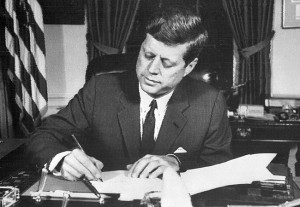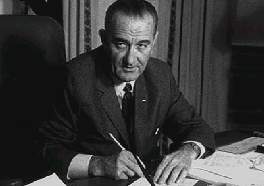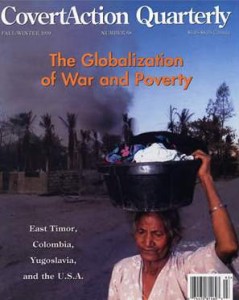Podcast: Play in new window | Download
Updates:
- Wikileaks Film titled The Fifth Estate Is A Propaganda Piece Against the Disclosures of Wikileaks
- Wikileaks Film titled MediaStan Is Produced By Julian Assange
—-
50th Anniversary of the Kennedy Assassination – Zachary Sklar, Screenwriter of the Film: JFK
November 22, 2013 will mark the 50th anniversary of the assassination of President John F. Kennedy. More than 600 books have been written on this national tragedy and yet the implausible explanations the Warren Commission report put forward remain as the official story. We’re joined today by Zachary Sklar to discuss some of those challenges and his work investigating those involved in the planning and covering up of assassinations.
Zach Sklar:
- The Warren Commission was a creature appointed by Lyndon Johnson.
- He persuaded Earl Warren to head this commission against his wishes. He was Chief Justice of the Supreme Court at the time.
- To bolster him on the commission, the one who did most of the work and guided the findings was Alan Dulles, former CIA directory. A man who’d been fired by John Kennedy after the Bay of Pigs invasion.
- The other one who was on it was Gerald Ford of course.
- So, there was a dissenting group of southern Congress people who really didn’t have much power. Ultimately, the power was with Alan Dulles.
- The CIA had overthrown Mossadegh in Iran, Arbenz in Guatemala, not only overthrowing governments but assassinating leaders.
- The commission report – that conclusion was decided upon and then they had to come up with some reasons to support it.
- The reasons were designed by Arlen Specter. He was a staff lawyer at the time and later a Senator from Pennsylvania. He came up with the Magic Bullet Theory.
- Because the Zapruder film came out with the time frame of 5.62 seconds and there were 3 bullets during that time frame, all the wounds in John Kennedy and John Connelly.
- Lee Oswald was given a paraffin test the day of his arrest. It was negative. It had proven he’d not fired a rifle that day.
- According to the Marines, Oswald was a mediocre marksman at best.
- The rifle that he was supposed to have used. . . if you ask any rifle dealer what the worst rifle, the least accurate rifle you could ever come up with they would tell you its the Mannlicher-Carcano. It’s called the humanitarian rifle by the Italians.
- All this should’ve been put to rest in 1979 when the House Select Committee on Assassinations investigated and came up with acoustical evidence from a police dictabelt recording and found that there was a 4th shot.
- If there was a 4th shot, there had to have been a second shooter. If there was a second shooter, there had to have been a conspiracy.
- Kennedy was well aware that the anti-Communist ideology of the cold warriors was fundamentally flawed. The whole domino theory is fundamentally flawed.
- After he was killed, very quickly, his (Kennedy’s) policies were reversed by Lyndon Johnson.
- The fact is that 4 days after he was killed Lyndon Johnson issued National Security Action Memorandum 273 which reversed Kennedy’s order and actually ok’s US military operations in Vietnam.
- On the very day he was assassinated Kennedy had sent a liaison to Cuba, to negotiate with Fidel Castro.
- At the top of the list are the leaders of the CIA.
- You have to understand that the Cold War had gone on for a long time, and people made careers, peoples’ livelihoods depended on the Cold War continuing. Big defense contracts depended on it.
- A lot of people had the motivation to kill Kennedy.
Guest – Zachary Sklar, Oscar-nominated co-screenwriter of Oliver Stone’s film JFK, and author of the book JFK: The Book of the Film. He’s a journalist, and a professor at the Columbia School of Journalism. He was also a contributor to The Lies of Our Times, a monthly journal dedicated to exposing the truth behind the mainstream media. Zach collaborated with director Oliver Stone on the screenplay of the movie “JFK” and was editor of Jim Garrison’s book “On the Trail of the Assassins.”
—–
Lawyers You’ll Like: Attorney Bill Schapp
Attorney William Schaap graduated from the University of Chicago Law School in 1964 and has been a practicing lawyer since. Bill specialized in military law and practiced in Asia and Europe. He later became the editor in chief of the Military Law Reporter in Washington for a number of years. In the 70’s and 80’s he was a staff counsel of the Center for Constitutional Rights in New York City. In the late 80s, he was an adjunct professor at John J. College of Criminal Justice of the City University of New York where he taught courses on propaganda and disinformation.
Attorney William Schapp:
- One of first cases at this big Wall Street firm, they had some outside counsel working on it, one of whom was David Lubel, and Dave Lubel who had I think been a recruiter for the Communist Party in his youth, was always good at spotting somebody who was always worth recruiting and he started to tell me there was this convention of this lawyers group.
- It was this 1967 Lawyers Guild Convention in New York. He dragged me to one event, I met Bill Kunstler, I met Arthur Kinoy, I met Victor Rabbinowitz. I’d been on Wall Street for a year or two, I said I didn’t know there were lawyers like this.
- I joined the same day and met Bernadine Dorhn and a few weeks she called me and said we need your help.
- She said you gotta defend a bunch of Columbia students. The next thing I knew the riot started at Columbia and she said you have to go down there and defend them.
- I signed up to be staff counsel on the National Lawyers Guild Military Law Project in Okinawa, Japan.
- When you work overseas in that kind of a climate with the military you learn a lot fast about American imperialism.
- Once you learn that, you learn about the CIA.
- That led us to originally working on Counter Spy magazine and then on Covert Action Magazine.
- The original purpose was to expose the CIA. We worked with Lou Wolf who is an expert in uncovering CIA agents in US embassies, not through any classified documents but because if you knew how to read the paperwork and State Department things, you could tell who are the “ringers.”
- We were so successful that Congress passed a law against us.
- Our goal was to make these people ineffective because the only way most CIA could work, particularly the ones that were assigned to an embassy was to have to pretend to be something else.
- They were all third assistant political secretaries and those were all phony things. Their job was to finagle their way into various community organizations in whatever foreign capital they were posted to recruit people to turn against their own countries and become traitors to their own countries, to become spies for the U.S.
- We thought if we identified these people, it might make their job a little bit harder, which it did.
- Of course, the problem with that is the government said we were trying to get them killed which we weren’t trying to do and nobody we did expose ever did get killed.
- He (Philip Agee) had been an adviser to Counter Spy. Counter Spy folded when Welch got killed, cause the pressure was too much and started Covert Action Quarterly.
- He was not the person discovering who the under cover people were, Lou Wolf was doing that.
- Phil wrote articles for us in every issue and we worked very closely with him.
- Once you start exposing these things, they really don’t have any defense.
- They tried to catch us in something phony. We would get tips that would turn out to be CIA trying to get us to print some story that wasn’t true so they could then discredit us.
- We had more interference from the government when we were doing military law work, before Covert Action Quarterly.
- They would plant bugs in our attic in Okinawa, things like that.
- The Intelligence Identity Protection Act has 2 parts. One makes it a crime for someone in the government who has classified information to reveal someone’s identity. The second part makes it a crime to reveal the identity of someone you did not learn from classified information or you position. (But if you were in the business of exposing these people . . .)
- Regarding his newsletter The Lies of Our Times – It was in the 90s, from 1990 to 1995 I think. To a certain extent, the abuses we were crying about got a little bit less over time because that’s sometimes the helpful result of that kind of exposure.
- We were just tired of people thinking that if it was in the New York Times it must be true.
- The fact is that those people lie all the time.
- I think we’ve gotten to a point where people recognize that the government lies to them and that there’s an awful lot that goes on that they don’t know.
Guest – Attorney William Schapp graduated from the University of Chicago Law School in 1964 and has been a practicing lawyer since. Bill specialized in military law and practiced in Asia and Europe. He later became the editor in chief of the Military Law Reporter in Washington for a number of years. In the 70’s and 80’s he was a staff counsel of the Center for Constitutional Rights in New York City. In the late 80s, he was an adjunct professor at John J. College of Criminal Justice of the City University of New York where he taught courses on propaganda and disinformation.
In addition to being a practicing lawyer, Bill was a journalist, publisher and a writer specializing in intelligence as it relates to media. He was the co-publisher of a magazine called the Covert Action Quarterly for more than 20 years. He also published a magazine on propaganda and disinformation titled Lies Of Our Times. Attorney Bill Schapp has written numerous articles and edited many books on the topic of media and intelligence.
——————————————————————



